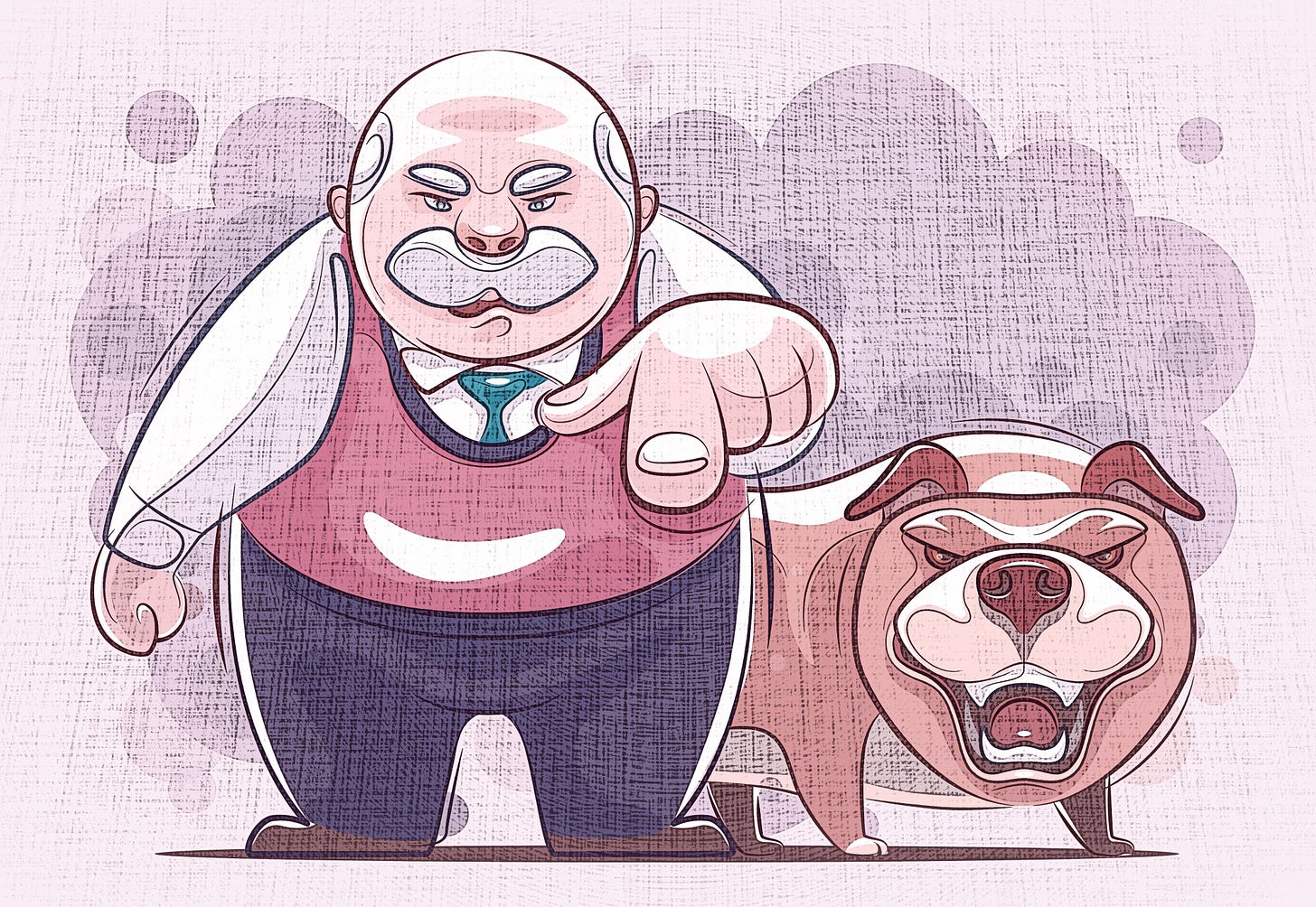Grandfather's Songs
In his 80s, Sydney Lea tries to piece together a fuller picture of his hot-tempered grandfather, who died when Lea was just 5.
What I knew of my grandfather in my younger years derived almost completely from family tales. His temper was especially legendary but, by my dad’s and his contemporaries’ accounts, often had comical results. As an adult, though, and especially now that, at 81, I’ve lived much longer than he did, I sometimes speculate on what lay behind all that anger. It took me decades merely to infer that my grandfather’s life and character surely included more than the mere few funny stories suggested.
To shape a narrative, though, largely defies my imagination. I was, after all, only 5 when Grandfather died. What little I have to work with, then, are fragments of recall. For example, there was a toy boat—clearly meant for me and other grandchildren—on a low shelf in his bathroom. I liked to sail it around the old man’s belly, which broke the surface while he soaked in the tub. He’d sing all through his bath, and even as a tot, I could tell his voice was glorious. In due course, I’d learn from my father that, while Grandfather never turned professional, his singing was famous throughout the neighborhood, indeed the region.
His temper was especially legendary but, by my dad’s and his contemporaries’ accounts, often had comical results. As an adult, though, and especially now that, at 81, I’ve lived much longer than he did, I sometimes speculate on what lay behind all that anger.
Today I’m making another effort to rough out something biographical, but no, I can’t do much. My grandfather’s long since gone, as, sadly, is my father, who died even younger. It’s far too neat to say that a random recollection of Dad’s tales about him spurred these reflections. I’ll try to explain the real, oddly indirect prompt.
After breakfast this morning, I took a little hike. I stopped in the woods at one point to study some tracks, preserved beneath a scrim of ice from the overnight cold snap. They made it easy to reconstruct what had happened there. I saw how a turkey had clawed for acorns under the snow; I also noticed a big scuffle where a hungry coyote barely missed the bird. I could picture both the brush wolf’s lunge and the big bird’s scrabble to get airborne. The turkey must have made it to a naked winter limb, because below the tree the predator’s bodily warmth had left an imperfect circle on the forest floor, revealing mulch and browned leaves. The coyote evidently sat under that birch for a while before trotting off.
It would be fatuous to claim that the turkey gloated or that its would-be killer felt rage. I don’t believe animals celebrate or bemoan their lives as we do; their lives are just their lives. The big bird had surely known narrow escapes before, and for the coyote, failure was common, as it usually is when wild creatures seek whatever they need to survive. Even the magisterial goshawk or osprey stoops unsuccessfully any number of times before it finally hooks a quarry. For both hunter and hunted, every day means a fight to endure, plain as that.
Standing there, I reflected that human life is at once easier and much more complicated, containing thoughts and emotions that, however elaborated by way of language, remain obscure, often to the very people who have them. Perhaps my crotchety grandfather was ultimately no more enigmatic after all than you or I.
He married a woman who by all accounts was physically beautiful, but was far more importantly a person of charm, wit, and high intelligence. He could hardly have foretold that multiple sclerosis would plant her in a wheelchair just after the birth of a daughter, their third child, half a decade later. Heartbreaking, yes, but infuriating too, I’d guess.
He’d sing all through his bath, and even as a tot, I could tell his voice was glorious. In due course, I’d learn from my father that, while Grandfather never turned professional, his singing was famous throughout the neighborhood, indeed the region.
I can’t remember Grandmother as that earlier paragon. I saw her only as the silent, gray-haired figure in her wheeled contraption, spellbound, it seemed, by her tall radio. Before he died himself, my father told me that when Grandmother didn’t feel like reading, she was especially keen on comedian, actor, and singer Eddie Cantor’s evening variety show, Time to Smile.
Was her husband’s lusty hatred for Cantor jealousy? Who can say? But his ill will extended even to any performer who appeared on Cantor’s show. To hear Grandfather talk about this radio personality, Dad said, was to imagine a monster, far from the chipper fellow who was a lifelong philanthropist, an originator among other things of the March of Dimes to raise money for polio research.
One day, Grandfather wrote Time to Smile’s host a terse letter. It apparently went as follows:
Dear Mr. Cantor,
Balls!
Sincerely,
Robert C. Lea.
In my father’s version of the story, Grandfather bolted from the house, holding the note like a weapon, to post it.
The man’s volatile life ended after a streetcar failed to stop for him at his usual corner. Convinced that the driver had deliberately ignored him, he ran all the way to the next stop, jumped on board, and started to punch him. No one called the police, the nearest being two townships away in any case, but onlookers quickly stopped the fracas. My dad reported that his father’s chief dismay was hearing someone say: “Grab that crazy old coot!” In 1947, 61 was an aged man.
One day, Grandfather wrote Time to Smile’s host a terse letter. It apparently went as follows: “Dear Mr. Cantor, Balls! Sincerely, Robert C. Lea.” In my father’s version of the story, Grandfather bolted from the house, holding the note like a weapon, to post it.
After all that day’s stress, my grandfather’s heart gave out at suppertime. Yet even his death, or more accurately the escapade that brought it on, came in for laughter. Some said that the incident showed what a scrapper he remained right up to the end.
Over the six or seven months she lived after her husband’s collapse, I’d now and then notice my grandmother crying, which both confused me and filled me with deep uneasiness. I had no resources for decoding adult behavior at so small an age. She stayed a mystery to me, so unfailingly quiet in my presence– or almost anyone’s, as far as I could determine. Sad to say, what I mostly recall of her now is the smell of powder when we exchanged our ultra-brief pecks of greeting or goodbye.
Again, the animals’ world, compared, seemed so simple to me this morning. For wildlife, it’s the proverbial matter of eat or be eaten. I’d easily interpreted those iced-in tracks, while in my grandparents’ case, fancy’s still free to construct what little it can. Though I spent more time with Grandfather than with his stricken wife, he remains just as cryptic to me as she in the end, if not more so.
Just now I wonder if my grandfather considered me at all while I sailed that wooden boat around his stomach, intent as he was on his singing. I can summon no words. All I remember is that, however lovely, his songs were full of sorrow. Even a child could hear that.







Beautifully written reminiscence. Life is a strange place, especially for people like you and I who are in the very ywilight years. And we get to reflect back on the "Forking paths" of our lives. Jorge Borges was very prescient about that. It's funny how you think that your life or even lifespan will in some way reflect that of your parents or grandparents. I too had a father and grandfather die young at 50, and to some extent felt that might be my lifespan as well. And perhaps unconsciously I lived my life a certain way, predicated on that thought. Though, no one can predict various twists and turns, And here I am in my mid-70s still tooling around, though more slowly for sure.
Oh my goodness, I didn't think I would even read this and it has prompted this reply. Yes on the simple minds of creatures without memories or other thoughts. My immediate response to this is we are over informed.
I too remember being very young, unable to decipher my mom's silent tears in her bedroom while she stared out the window into our backyard. I was without the words to express condolences, or care, worried if it would make her madder or sadder if I said anything. I still don't know what that was about but it went on for months.
Here's the important part. We were sailing around for months visiting different places in Mexico during the 1990's with our 12 year old daughter. One place we anchored, along with a lot of other cruising boats, was outside of the city of La Paz, Mexico. The owners of the marina there had a little dock for cruisers to tie up too, and a very nice restaurant overlooking the bay. Locals and sailors were their main customers. We decided to splurge on a restaurant breakfast. They were kind enough to let us use their docks. They had a TV mounted in the corner. We had not seen a screen of any sort for weeks and weeks. We were mesmerized. We were completely removed from the political scene in the USA. The news was on in English.
After our meal we decided nothing had changed, it wasn't that important. What was important was finding our fresh produce at the public market, which we had to walk blocks to get to, and managing our lives on a no frills sailing expedition. Our minds were in a completely better place. Probably like the turkey and the coyote.